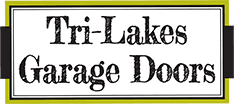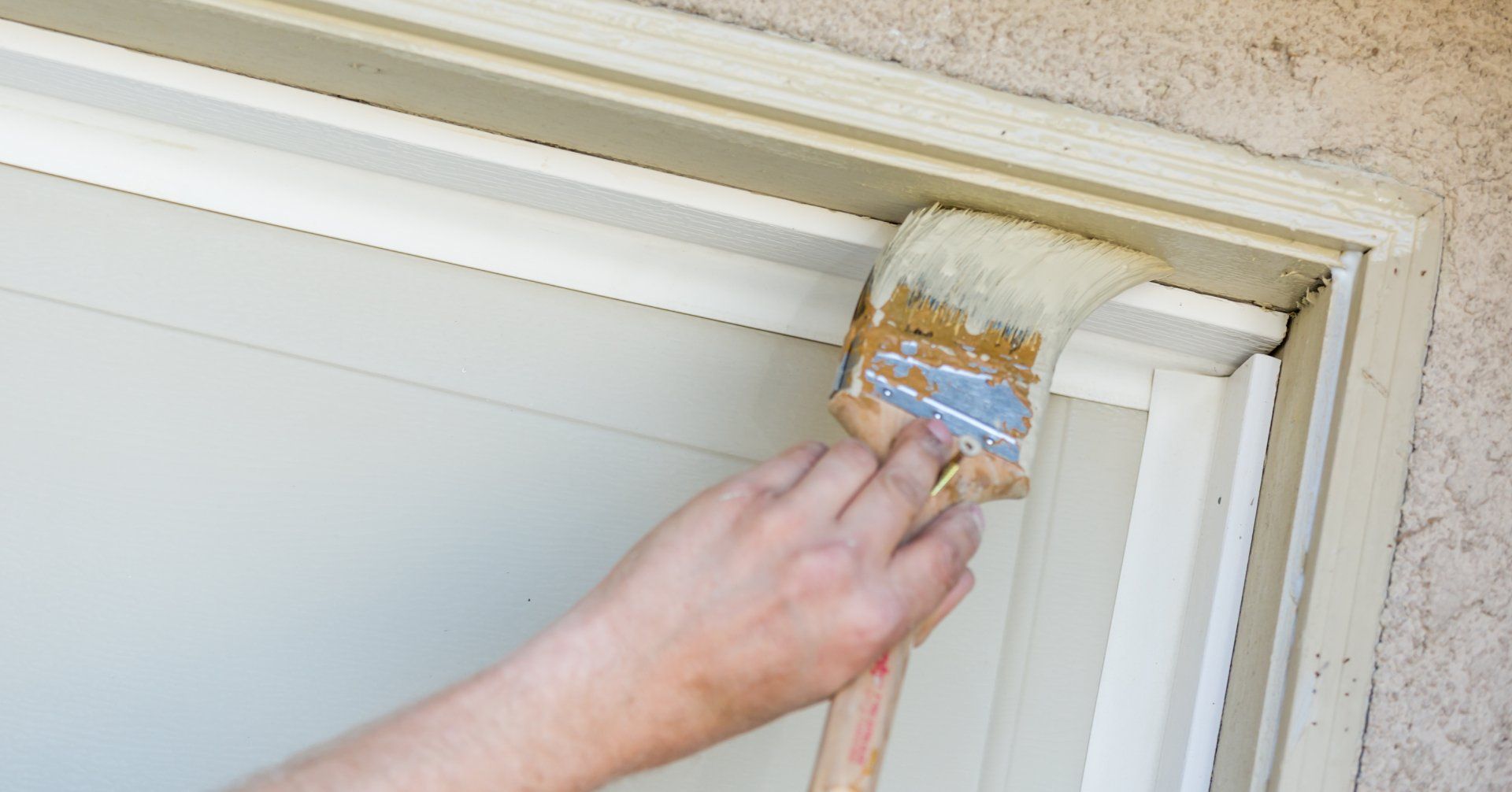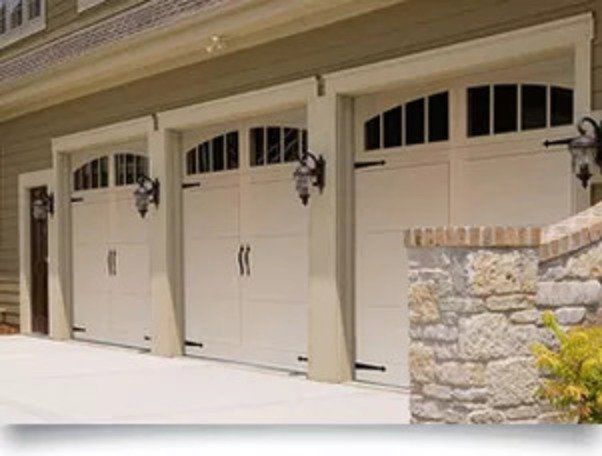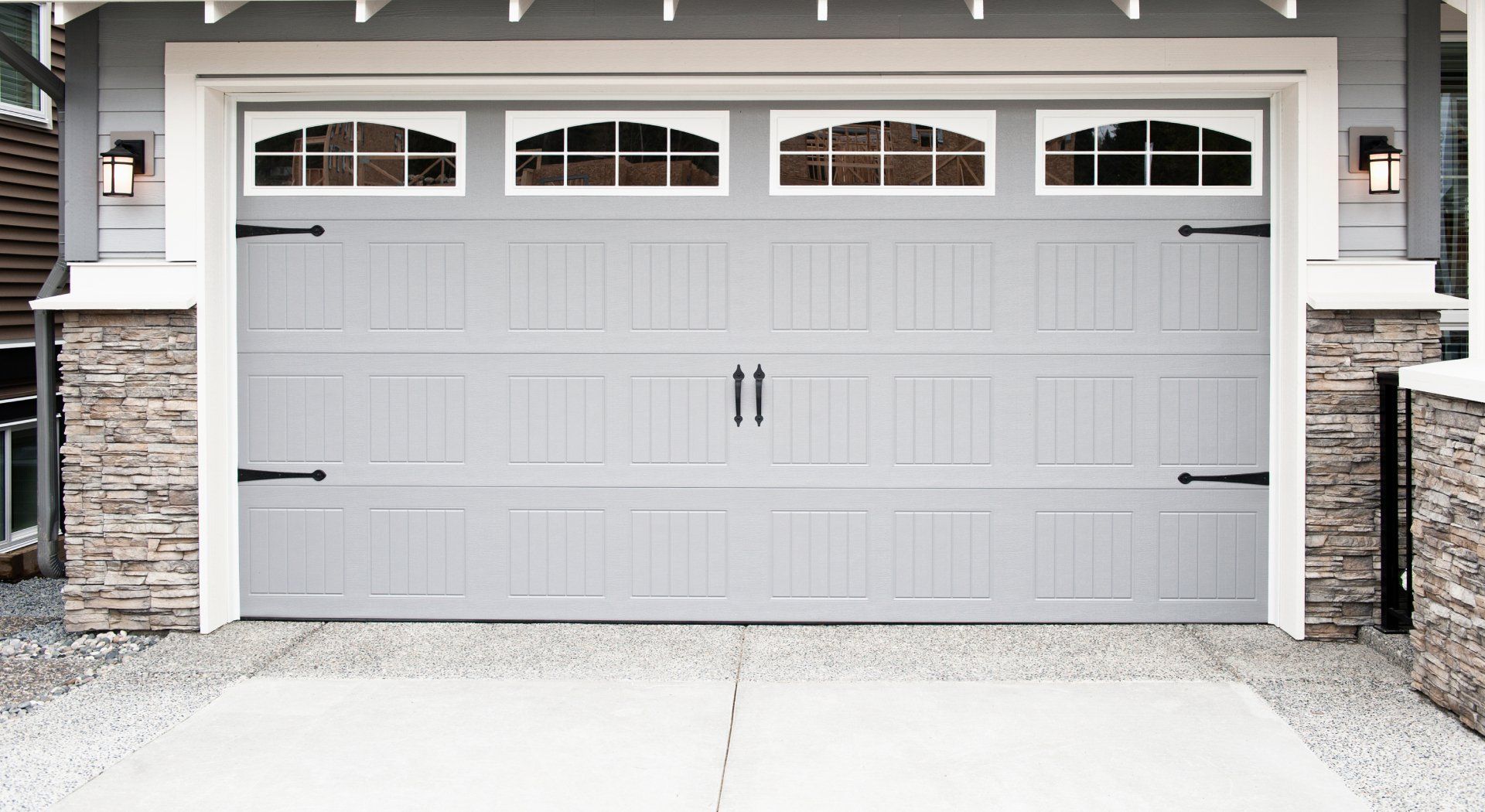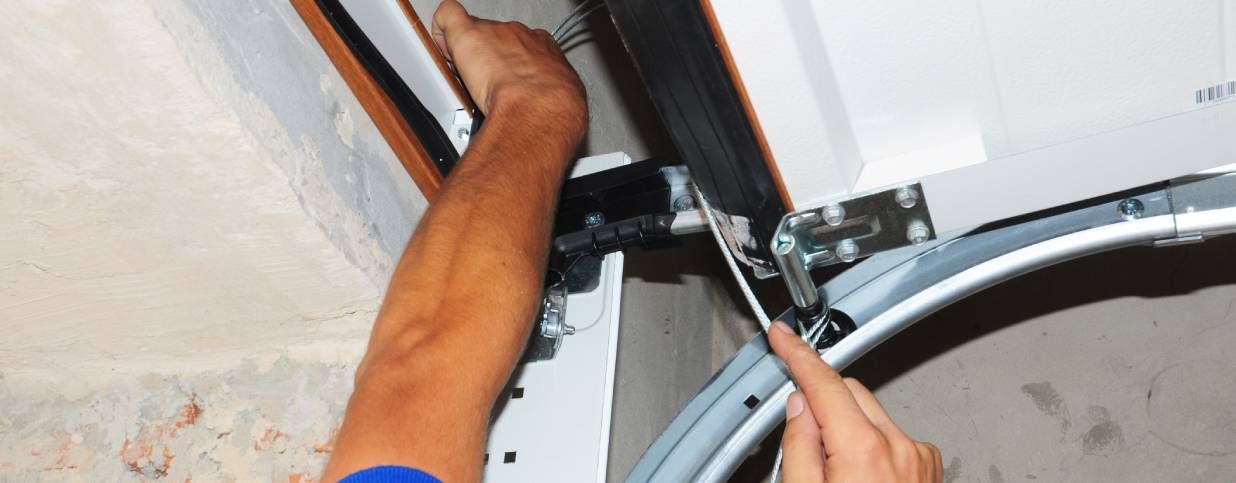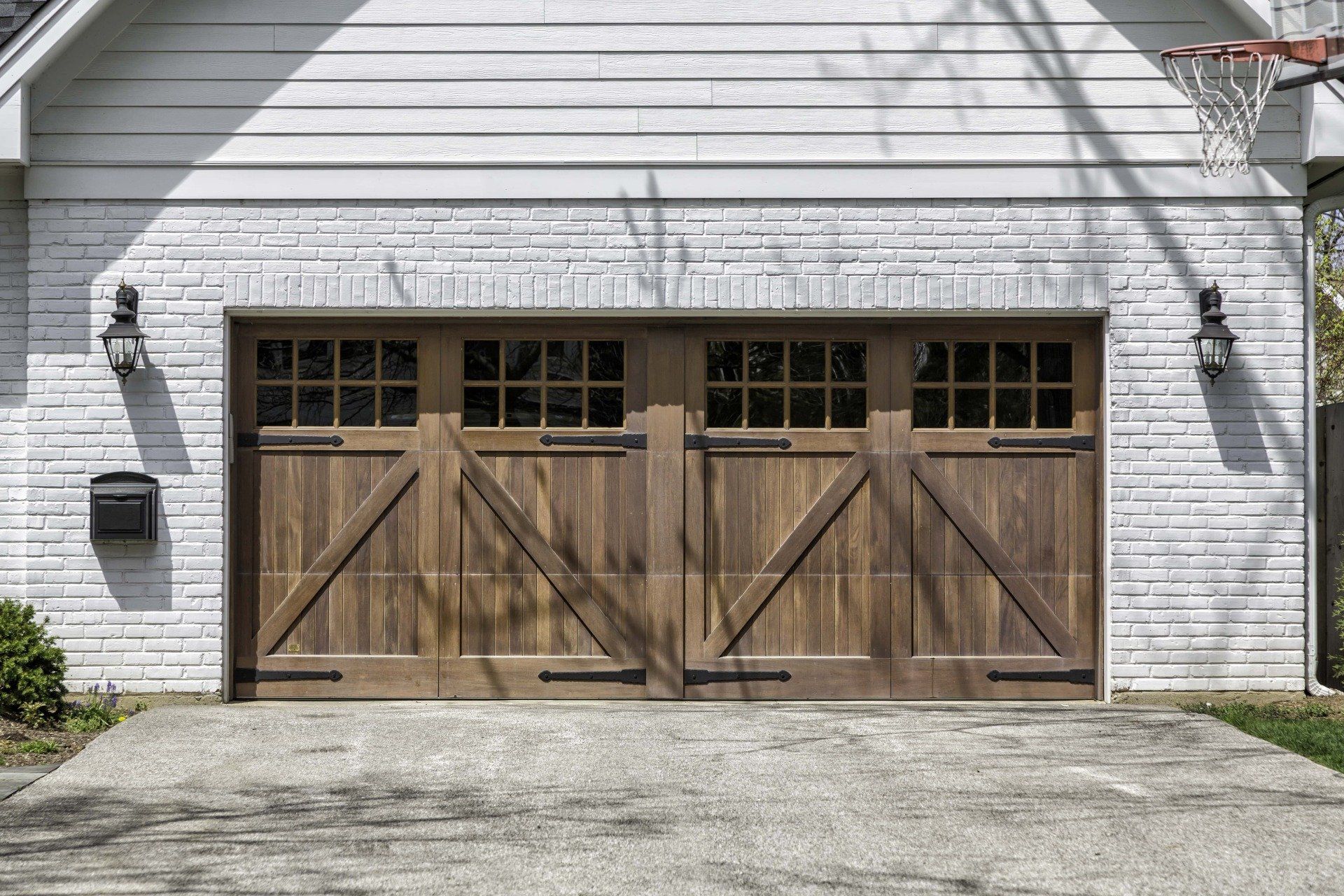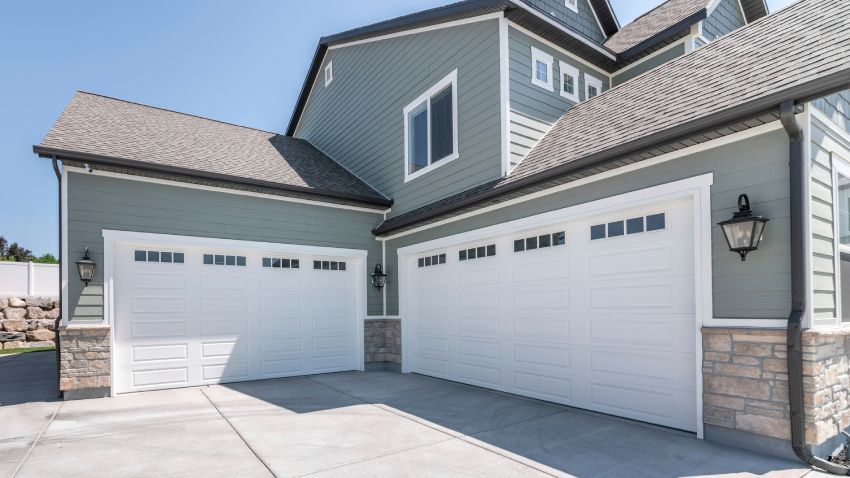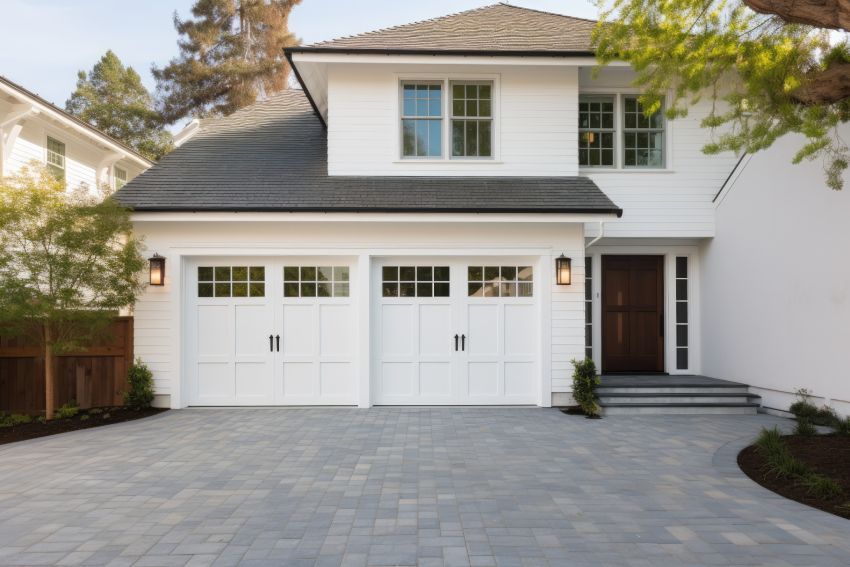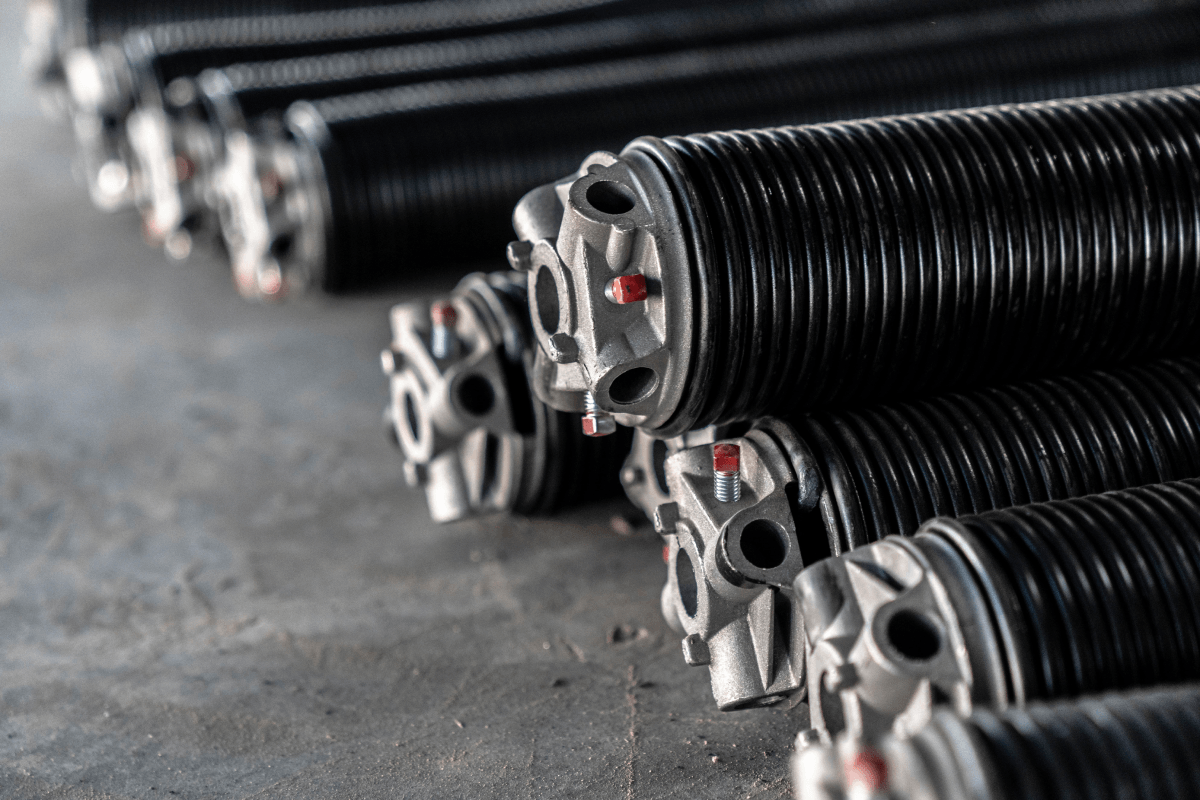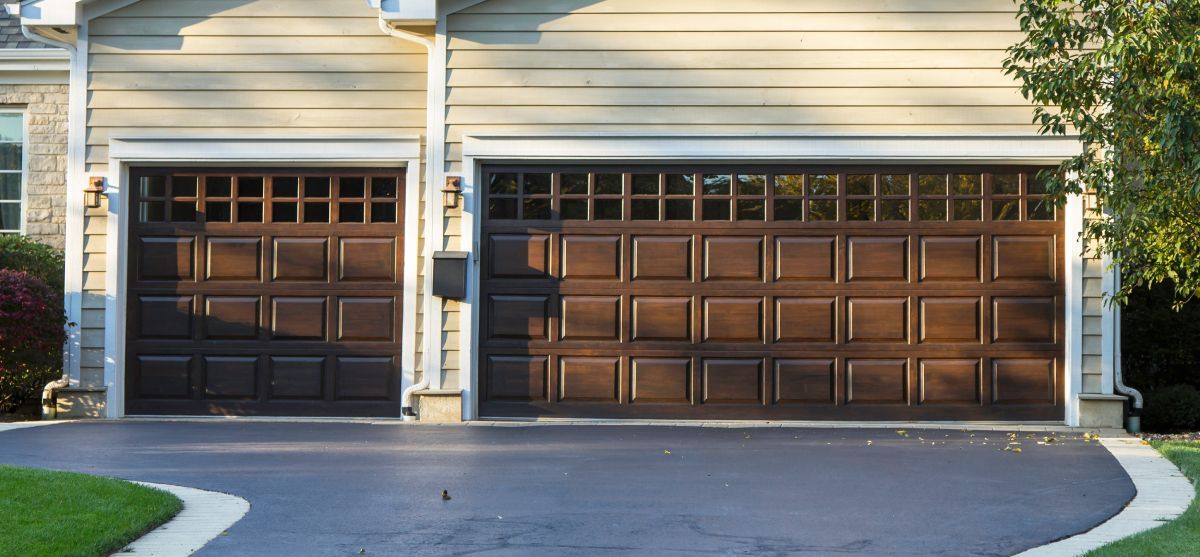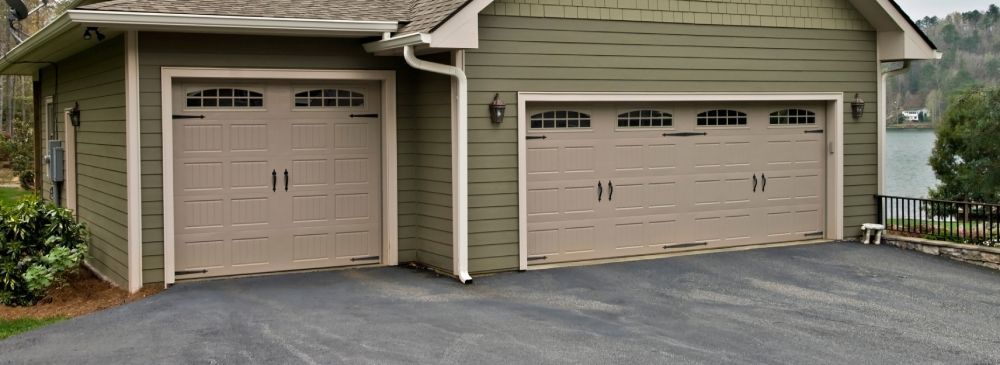How to Lubricate a Garage Door and Its Components
By Jim Hatley, May 9, 2025
The Importance of Garage Door Lubrication
Knowing how to lubricate a garage door is essential for smooth and quiet operations. Your garage door relies on a system of moving parts, rollers, hinges, springs, and chains, all of which require regular maintenance to function efficiently. Without proper lubrication, these components face increased friction and wear, leading to premature failure and costly repairs.
A Step-by-Step Guide to Lubricate Your Garage Door
Step 1: Clean the Tracks
Step 1: Clean the Tracks
Use a damp cloth to wipe away dirt or dust from the tracks. Avoid using lubricants on the tracks, as this can attract dirt and hinder smooth operation.
Step 2: Inspect and Tighten Hardware
Check all nuts and bolts on the garage door and tighten any that are loose. This helps prevent potential issues and ensures components are secure.
Step 3: Lubricate Hinges and Rollers
Apply white lithium grease to the metal hinges and the bearings of the rollers. Be cautious to avoid getting lubricant on nylon parts, as it can degrade them. Wipe away any excess to prevent buildup that could attract dirt.
Step 4: Lubricate Springs and Bearing Plates
Spray a light coat of white lithium grease on the torsion springs and bearing plates. This reduces friction and helps extend the lifespan of these components. If you're unsure or uncomfortable performing this step, consider consulting a garage door professional.
Step 5: Lubricate the Opener's Chain or Screw Drive
If your garage door opener uses a chain or screw drive, apply lubricant to these components to ensure smooth operation. Avoid using standard WD-40, as it can attract dirt; instead, opt for white lithium grease or a silicone-based lubricant.
Step 6: Test the Door
Manually open and close the garage door several times to distribute the lubricant evenly. Listen for any unusual noises and observe the door's movement to ensure it's operating smoothly.
Signs Garage Door Lubrication is Needed
It is advised to lubricate your garage door at least once every six months as part of regular maintenance. However, if you hear grinding noises, notice jerky movement, or the door isn’t operating smoothly and quietly, it may be wise to take action sooner. These are clear indicators that your system needs attention to avoid potential issues and maintain smooth operation.
Common Mistakes to Avoid During Lubrication
It is easy to make the following mistakes when trying to lubricate your garage door. Avoiding these common errors can make it easier to maintain your door and extend its lifespan:
- Don’t use petroleum-based lubricants: They can attract debris and don’t protect against corrosion as effectively as white lithium or silicone-based lubricants.
- Never lubricate the tracks: This is a common mistake. Tracks should be cleaned using a dry cloth or automotive brake cleaner to remove grime and buildup. Lubricating them can hinder the rollers’ movement.
- Don’t overuse lubricant: Apply light, even coats to each part and reapply only if needed. Too much lubricant can lead to waste and cause debris to collect. Always wipe away any excess.
- Neglecting inspection during lubrication: Take time to identify any loose or tight nuts and bolts, worn components, or signs of break or damage. If parts appear damaged, it may be time to replace them. Check each side of the door thoroughly.
When to Call a Garage Door Professional for Advice
Tri-Lakes Garage Doors proudly serves home and business owners across the Front Range with expert service and trusted advice. If you’re unsure whether you need to lubricate or if you’re dealing with stubborn issues, contact one of our professionals. For larger problems, professional inspection and repair may be necessary.
Please remember the importance of regular lubrication and knowing how to lubricate a garage door properly to avoid premature wear and ensure smooth operation.
What Should I Do If My Garage Door Is Still Noisy After Lubrication?
If your door remains noisy after proper lubrication, there may be underlying issues such as worn-out rollers, loose components, or alignment problems. In this case, it's best to have a garage door professional inspect the system to identify and address the root cause.
Is Garage Door Lubrication Different in Cold Weather?
Yes, temperature can affect lubrication. Cold weather can cause some lubricants to thicken, reducing effectiveness. Choose a lubricant rated for a wide temperature range, and consider increasing lubrication frequency during harsh Colorado winters to maintain reliable performance.
What Are the Benefits of Garage Door Lubrication?
Lubricating your garage door helps reduce friction, prevent wear, and ensure components move smoothly. It minimizes noise, extends the life of parts like rollers, hinges, and springs, and reduces strain on the opener. Regular lubrication is a simple step that can prevent costly repairs and keep your garage door operating efficiently.
